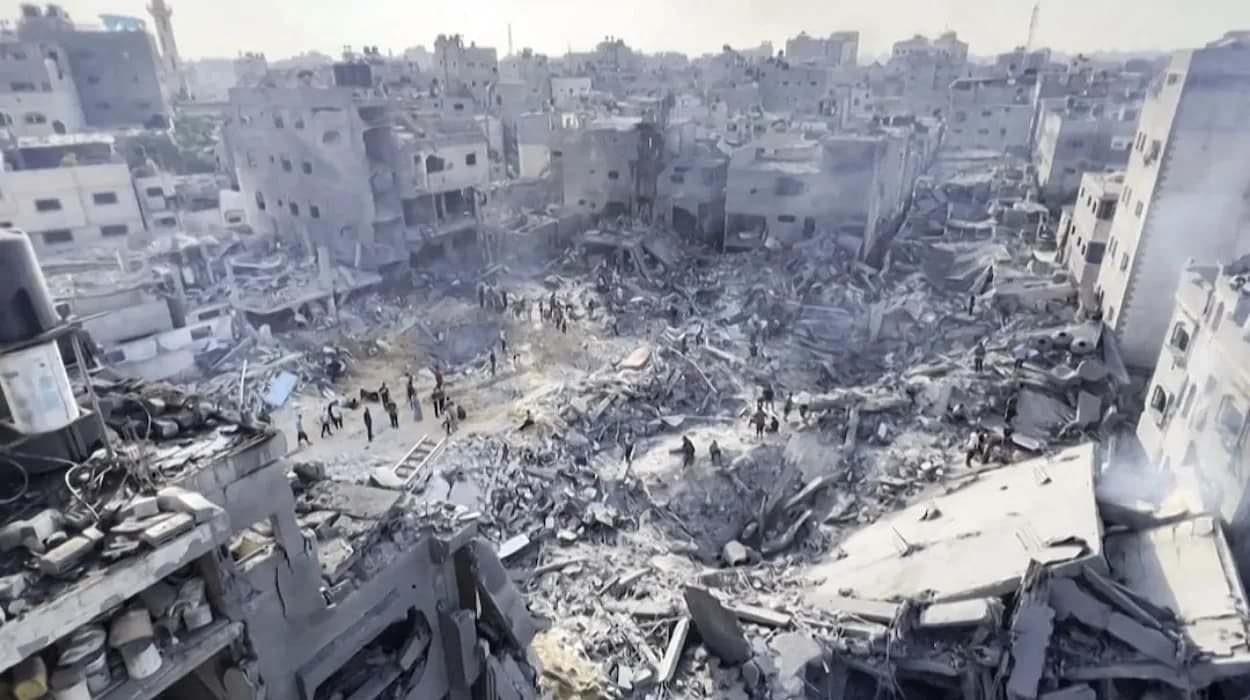Israel has reportedly unveiled a contentious proposal to
construct 200,000 illegal settler units in northern Gaza, aiming to forcibly
displace millions of Palestinians and transform the area into a new hub for
Jewish settlers, likened to a "Hong Kong." This plan has sparked
widespread condemnation and raises significant international concerns about
human rights and the future of the region.
Israel's Alleged Plan to Transform Northern Gaza
Reports indicate that Israel is moving
forward with a highly controversial and ethically questionable plan to
build 200,000 illegal settler units in northern Gaza.
This audacious proposal is said to involve the forced displacement of millions
of Palestinians, with the ultimate goal of establishing a new area
predominantly for Jewish settlers. The audacious scheme has been described as
an attempt to turn Gaza into a "Hong Kong" for Jewish settlers, an
analogy that has drawn immediate and fierce criticism from various international
bodies and human rights organizations.
Key elements of this alleged plan
The core of the alleged plan involves a massive construction
project in northern Gaza, focusing on the development of residential units for
Israeli settlers. The specific details regarding the timeline for this
construction, funding sources, or the exact mechanisms for the proposed
"forced displacement" of the current Palestinian population remain
unclear in the initial reports. However, the sheer scale of the proposed
200,000 units suggests a significant demographic shift is envisioned.
Who is behind this controversial proposal?
While the initial reports point to Israel as the entity
behind this plan, specific individuals or government bodies within the Israeli
administration that are spearheading this initiative have not been explicitly
named. Journalists are currently working to verify the precise origins and
endorsements of this highly sensitive proposal within the Israeli government.
Where will these settler units be built?
The plan specifically targets northern Gaza for
the construction of these units. This region is currently densely populated by
Palestinians, raising serious concerns about the potential for widespread
displacement and humanitarian crises should the plan proceed. The geographical
focus on northern Gaza suggests a strategic intent to gain control and
establish a strong Israeli presence in that particular area.
When did these reports surface?
The news of this controversial plan emerged recently, as
detailed in the headline. The timing of this announcement is particularly
significant given the ongoing geopolitical landscape and the heightened
tensions in the region. Events like these are closely monitored by global news
outlets and are considered among the "Top news stories to watch in
2025," as highlighted by HotTopics.ht . The ability
to anticipate such changes is a hallmark of strong leadership, and business
leaders are urged to stay informed about these complex developments .
Why is this plan generating such strong opposition?
The plan has been met with immediate and widespread
condemnation due to several critical factors:
- Illegality
of Settlements: International law largely considers Israeli
settlements in occupied territories to be illegal. The construction of
200,000 new units would represent a massive expansion of these
settlements, further entrenching an internationally unrecognised presence.
- Forced
Displacement: The explicit mention of "forcibly displacing
millions of Palestinians" is a major point of contention. Such
actions would constitute a grave violation of human rights and
international humanitarian law, potentially leading to a humanitarian catastrophe.
- Demographic
Engineering: Critics argue that the plan is a blatant attempt at
demographic engineering, aiming to alter the ethnic and religious
composition of Gaza. This could exacerbate existing conflicts and
undermine any future peace prospects.
- "Hong
Kong" Analogy: The comparison of Gaza to "Hong
Kong" for Jewish settlers has been seen as insensitive and
provocative, suggesting a colonialist mindset that disregards the rights
and autonomy of the indigenous Palestinian population.
How will this impact regional stability?
The implementation of such a plan would undoubtedly have
profound and negative implications for regional stability. It is likely to:
- Escalate
Conflict: The forced displacement of Palestinians and the
expansion of settlements could ignite further violence and conflict
between Israelis and Palestinians.
- Strain
International Relations: The international community, including
key allies, would likely condemn such actions, potentially leading to
diplomatic repercussions and sanctions against Israel.
- Undermine
Peace Efforts: Any efforts towards a two-state solution or a
lasting peace agreement would be severely jeopardized by such a unilateral
and aggressive move.
